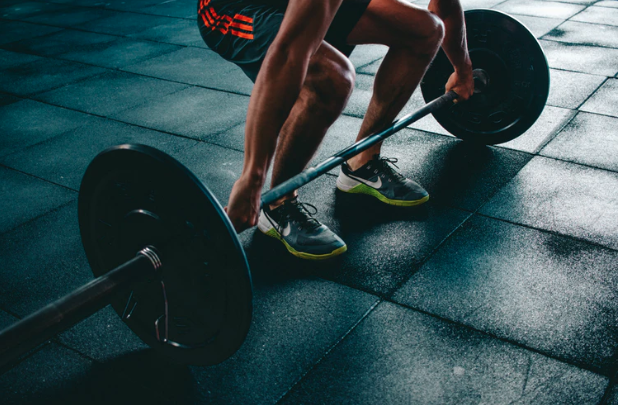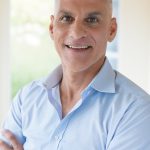Hormone Magic: Let’s Start With Testosterone

Talking about testosterone with my male patients is becoming very common. The most frequent reasons cited for seeking testosterone therapy are no sex drive, no muscles, and no energy. In this stressed out, sleepless, toxic world of ours in which men are living longer it is no surprise they struggle with these symptoms. Is testosterone the answer? There are few topics in men’s health with a narrative that has as much controversy, passion, and intrigue. We are talking about manhood and potency, so to expect anything less would be foolish.
What is it?
Although most known for its role as a sex steroid, testosterone also has effects on many body functions. In the brain, it influences mood, memory, and intellect in addition to sex drive. Testosterone maintains muscle strength and growth and helps maintain normal blood counts and bone strength. It may also be important for normal cholesterol balance. Testosterone maintains erections, fertility, and prostate function. In summary, testosterone is an essential hormone for a healthy male body.
Keeping it up
After the age of 35 men begin to experience a 1 to 2 percent drop in testosterone levels per year. This drop can be significant, affecting 20 to 40 percent of older men. Since we are living longer and 60 is the new 40, men who experience a loss of vigor are looking for answers. As they should, because all of the important functions listed above can be affected. Why should a man have to experience loss of vitality and optimal performance due a decline in testosterone? They shouldn’t, but here are some important points to consider:
Loss of vitality is not always due to testosterone. We have to get to the root cause. Lack of sleep, limited exercise, no stress relief, too much alcohol or pot, poor food choices, obesity, toxins, diseases like diabetes, and even your genes play a role. My golden rule for hormones: Look for root causes and lifestyle factors and treat them first. Ultimately, this will lead to better overall health and performance. Recently I had a patient with low testosterone who had a genetic predisposition to convert too much of his testosterone into estrogen. On top of that he was overtraining, not sleeping, and had no stress management plan for his overbooked life. First, I taught him the importance of rest and recovery and improved his post-training nutrition. Those changes alone led to better sleep, more energy, and better results in the gym. Meditation was added to enhance stress resilience and things only got better as he reported more focus and, wait for it… better sex. When testosterone (which was in the low-normal range), was addressed it was done so indirectly by slowing his conversion of testosterone to estrogen. This resulted in higher levels of testosterone and increases in lean muscle mass. No testosterone was needed.
Low testosterone is a question of hormone balance. As exemplified in the example above it is never just testosterone. If testosterone is low I consider the hormone producing organs, most notably the adrenal glands and thyroid. An underactive thyroid can lead to low testosterone and low sex hormone binding globulin (SHBG). SHBG helps active testosterone circulate. Stress results in the adrenal glands producing high levels of cortisol which plays a critical role in blocking testosterones influence. You can have all the testosterone in the world but if you have not addressed potential adrenal and thyroid issues you will not see the results we were hoping for.
Just don’t replace, optimize. Ultimately men are looking for optimal results in the gym, enhanced vitality, and overall excellent performance. Testosterone alone will not do it. As I have discussed thus far it takes attention to details of lifestyle like nutrition, sleep, stress, exercise, and healthy relationships. Once that foundation is laid and we have addressed gut issues, stealth infections, toxins, immune dysfunction, and metabolic disorders then we tackle hormone balancing. When I do start testosterone therapy it is after detailed hormonal testing that looks at metabolism of hormones, not just totals. This allows me to address imbalances most effectively. I always do genetic testing to assess for gene variations that impact hormone metabolism, response to exercise, detoxification, oxidation, and inflammation. Finally, I adjust therapeutic interventions around a patient’s preferences and needs.
If you are concerned about flagging energy and lost vitality it could be testosterone. The takeaway point is that great performance is achieved by optimizing hormones in the context of a healthy lifestyle. If you have used testosterone, let me know if you achieved the goal of your therapy.

